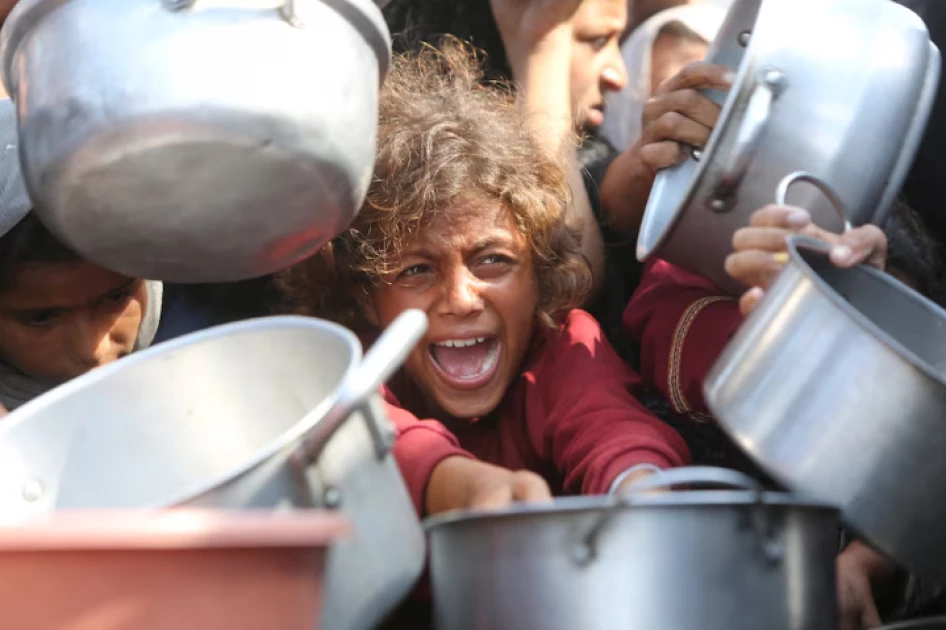
In a stark and historic declaration, a global hunger monitor has confirmed that famine is now occurring in Gaza City and its surrounding areas, marking the first time such a crisis has been officially recorded outside of Africa. The announcement, made by the Integrated Food Security Phase Classification (IPC) initiative, has intensified international pressure on Israel to allow a massive and immediate increase in aid into the besieged Palestinian territory.
The IPC report, released on Friday, states that 514,000 people—nearly a quarter of Gaza’s population—are currently experiencing catastrophic hunger. This number is projected to surge to 641,000 by the end of September if conditions do not change. The northern region, including Gaza City, is already classified as being in a state of famine, a condition defined by at least 20% of households facing extreme food shortages, one in three children suffering from acute malnutrition, and a daily death rate of two people per 10,000 from starvation or related diseases.
The war between Israel and Hamas, now in its second year, is the direct cause of this man-made disaster. The conflict was triggered by Hamas’s October 7, 2023, attack on southern Israel, which killed 1,200 people and saw roughly 250 taken hostage, according to Israeli tallies. Israel’s subsequent military campaign has killed over 62,000 Palestinians, according to Gaza health authorities, and has decimated the territory’s infrastructure, economy, and access to basic necessities.
Aid Blockades and Accusations
The United Nations and numerous aid agencies have repeatedly cited Israel’s systematic obstruction of aid deliveries as the primary reason for the famine. While Israel controls all access points into Gaza and denies restricting aid, the UN has complained of immense obstacles in delivering and distributing supplies, blaming both Israeli impediments and internal lawlessness.
“The Israeli government’s refusal to allow sufficient aid into Gaza has caused this man-made catastrophe. This is a moral outrage,” stated British Foreign Secretary David Lammy, echoing a sentiment shared by a growing number of Western allies. Britain, Canada, Australia, and many European nations have recently stated that the humanitarian crisis has reached “unimaginable levels.”
Israel firmly rejected the IPC’s findings. COGAT, the Israeli military body overseeing aid flows, accused the IPC of bias and of running a propaganda campaign for Hamas, arguing that the report ignored Israeli data on recent aid deliveries. Israeli Prime Minister Benjamin Netanyahu went further, calling the report an “outright lie” and a “modern blood libel.”
Diplomatic Fallout and Waning Support
The declaration of famine carries significant diplomatic weight. UN Secretary-General António Guterres labeled the situation a “moral indictment and a failure of humanity itself,” calling for an immediate ceasefire, the release of all hostages, and unfettered humanitarian access. UN human rights chief Volker Türk warned that deaths from starvation could amount to a war crime.
Perhaps most worrisome for Israel is the potential erosion of support from its most powerful ally, the United States. A recent Reuters/Ipsos poll found that 65% of Americans believe the U.S. should help those starving in Gaza. Even former President Donald Trump has broken with the Israeli narrative, stating last month that many people in Gaza are starving, directly contradicting Netanyahu’s repeated denials.
An Unclear Future
The IPC warned that the famine is likely to spread to central and southern Gaza by July. The report could not classify the situation in North Gaza due to access restrictions and a lack of data, noting that the reality there may be even worse. The southern Rafah region was excluded from the analysis as it is now largely uninhabited following recent Israeli military operations.
As U.S., Qatari, and Egyptian mediators continue efforts to broker a ceasefire, the world is now confronted with a preventable catastrophe. “It is a famine that we could have prevented had we been allowed,” said UN humanitarian chief Tom Fletcher. “Yet food stacks up at borders because of systematic obstruction.”
The international community now watches and waits to see if the grim reality of famine will finally force a change in policy and bring an end to the suffering.




